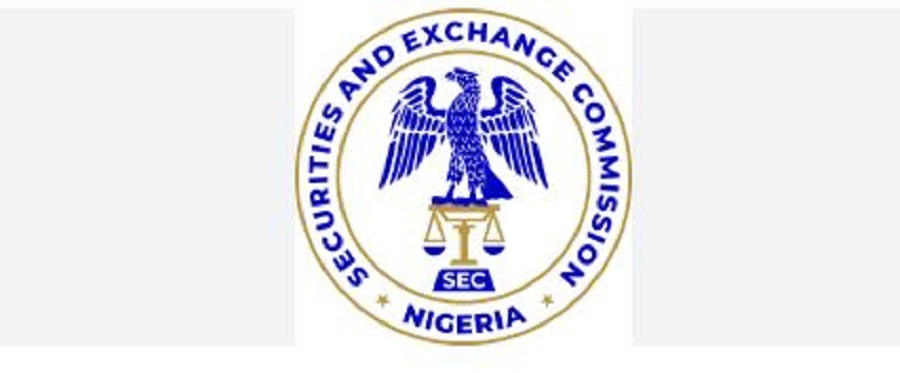E-Financial
CBN’s Axe Dangles on MFBs

Microfinance banks in the country have up to Monday next week that is December 31 to shore up their capital bases or risk being thrown out of business.
Central Bank of Nigeria (CBN) has microfinance banks into three categories, depending on their area of coverage.
Those authorized to operate in one location must have a capital base of N20 million; and those allowed to operate in one state or the Federal Capital Territory (FCT) must have a capital base of N100 million; while N2 billion is required for those that are allowed to operate in more than one state, including the FCT.
These were contained in circular issued by the CBN in August titled, “Revised Microfinance Policy Regulatory and Supervisory Framework for Nigeria”.
Reminding the microfinance banks operators in a new circular titled, “Re: Circular on the Revised Microfinance Policy Regulatory and Supervisory Framework for Nigeria”, CBN said there would be no extension in the deadline.
O.A. Fabamwo, CBN director, Other Financial Institutions Supervision Department said in the new circular that “Appeals for a waiver, or reduction of penalty, or extension of compliance deadline will not be entertained”
Fabamwo said all MFBs that have elected to remain Unit MFBs are required to close any existing branches/cash centres, subject to prior approval of the CBN in writing and adequate notification to existing customers, who should be advised to migrate their accounts to the MFB’s Head Office, while dissenting customers should be settled.
Penalty for operating a branch/cash centre without prior approval of the CBN as stipulated in Section 13.1(b) of the Revised Guidelines for MFBs is N250,000 per branch for a Unit MFB, N500,000 per branch for a State MFB and N1,000,000 per branch for a National MFB.
Fabamwo said: “Such unapproved branched/cash centres shall be closed within thirty (30) days. Failure to close an unapproved branch or cash centre, shall attract a fine of N5,000 for each day of default, irrespective of the category of MFB.
“Moreover, failure to comply with any directive issued by the CBN, as stipulated in Section 19(i) of the Revised Guidelines for MFBs, is a ground for revocation of licence.” Fabamwo added.
E-Financial
FIRS Decries Cross-border Tax Crimes

Dr Zacch Adedeji, Chairman of the Federal Inland Revenue Service (FIRS), has stated that cross-border tax crimes had undermined effort of countries to raise revenue for development.

He added that cross-border tax crimes distorted fair competition because compliant companies pay a higher cost for business and appear less profitable.
He also challenged global leaders to tackle the rising cross-border crimes that have disrupted revenue mobilisation and economic growth. Adedeji threw the challenge while delivering a keynote address at the 42nd Cambridge International Symposium on Economic Crimes (CIDOEC) held at the University of Cambridge, United Kingdom.
The symposium has, for over four decades, been a crucible of ideas, a forge for strategies, and a platform where countries chart a collective course against the impact and threat economic crimes pose to countries and institutions.
The global meeting was attended by about 1,000 participants from more than 100 countries, including legislators, policy makers, law enforcement agencies, security and intelligence personnel, regulators, governance and compliance officers, and academics.
Special Adviser on Media to the FIRS boss, Dare Adekanmbi, in a statement, said Adedeji was represented by the Coordinating Director of Proceeds of Crime Management and Illicit Financial Flows and immediate past chairman of the Independent Corrupt Practices and Other Related Offences Commission (ICPC), Professor Bolaji Owasanoye.
“This year’s theme ‘Cross-Border Crimes’ speaks directly to one of the most complex and corrosive challenges of our interconnected world. “In a global economy where capital can move faster than law enforcement, and where digital and legal arbitrage often outpace regulation, the fight against crossborder economic crime is, by necessity, both local and global, both urgent and pressing.
“Modern day cross border crimes remind us that borders and boundaries have become virtual and distance irrelevant to the perpetration of crime and the negative impact on victims,” said Adedeji, who is also the Special Adviser on Revenue to President Bola Ahmed Tinubu.
On corporate or natural citizens who evade, avoid, fraudulently manipulate tax obligations by exploiting the intricacies of international trade or international finance, the FIRS boss said they have become implicated in cross border crimes.
He said: “When corporate or natural persons earn income in one country but hide same in another country, when they deceive, conceal or falsify records, they undermine the integrity and fiscal aspirations of the two countries they are manipulating. “When they hide income and assets in secrecy in some jurisdictions to avoid home-country taxes, they are hurting the fiscal target of home country.”
E-Financial
SEC Launches Redesigned Website to Boost Transparency, Investor Safety

Securities and Exchange Commission (SEC) Nigeria has officially launched its newly redesigned website, marking a significant step toward enhancing digital engagement, regulatory transparency, and investor protection.

The regulator, in a statement on Monday, said the upgrade introduces a modern design, enhanced functionality, and a streamlined user experience aimed at investors, market operators, and the general public.
According to the SEC, the new platform features improved navigation, consolidated resources such as regulatory guidelines and publications, and a mobile-friendly design.
“This comprehensive upgrade introduces a modern design, enhanced functionality, and a streamlined user experience,” SEC said.
“The restructured platform ensures critical information is better organized and more accessible for all stakeholders, including investors, market participants, and the general public.
“Key enhancements include an intuitive menu and site structure for finding information quickly.
“Consolidated Resources: Key documents, regulatory guidelines, and publications are now easier to locate. A responsive design optimized for desktop and mobile devices.
“The initiative underscores the Commission’s ongoing commitment to transparency, operational efficiency, and improved stakeholder engagement.”
According to Emomotimi Agama, director-general (DG) of SEC, the website redesign reflects “our dedication to continuous improvement in service delivery and communication”.
“This digital advancement is a significant step in building a more transparent and accessible Commission, enhancing our engagement with the capital market and the investing public,” Agama said.
Also speaking, Samiya Usman, executive commissioner for corporate services at SEC, said the focus went beyond aesthetics.
“By simplifying access and logically organizing content, we have created a powerful platform that supports our mission to develop and regulate a fair, efficient, and transparent capital market,” the commissioner said.
The SEC urged stakeholders to explore the website and use its features to access regulatory updates, news, and services.
E-Financial
Fidelity Bank Eyes DRC’s Vast, Underbanked Market for Expansion

Fidelity Bank, one of Nigeria’s leading financial institutions, has announced its intention to establish a lasting presence in the Democratic Republic of Congo (DRC).

Nneka Onyeali-Ikpe, group managing director, Fidelity Bank Plc, met with the Augustin Kibassa Maliba, Congolese Minister of Digital Economy, in Kinshasa on last week to discuss the plan.
Onyeali-Ikpe stated that the Congolese subsidiary would focus on funding digital projects and financial inclusion.
If the expansion proceeds, Fidelity Bank would become the 16th active bank in the DRC and the fourth Nigerian-owned institution, joining Access Bank, FirstBank and United Bank for Africa (UBA).
The Congolese government views the move as a way to broaden financing options for small and medium-sized enterprises (SMEs), tech startups, and public digital transformation initiatives.
Fidelity Bank is already involved in a project to launch a Congolese satellite aimed at improving internet connectivity and bolstering the digital economy.
The DRC’s banking sector remains significantly underdeveloped.
In 2024, with a population exceeding 100 million, the country had approximately 15 commercial banks, most of which were subsidiaries of foreign banking groups.
The banking penetration rate was only about 6% in 2022, well below the African average of 15%.
Additionally, bank loans to the private sector accounted for just 9% of GDP in 2023, compared to a continental average of 25% to 28%.
Also, according to the Central Bank of Congo, total bank deposits reached $12.87 billion by the end of May 2024, with households contributing 33.5% of the total.

 Telecom2 days ago
Telecom2 days agoMTN Nigeria Empowers over 3,000 Customers with ₦579m in Mega Billion Promo

 News2 days ago
News2 days agoSuri’s Memoir Sparks Visionary Dialogue with Zimbabwean Ministers on Africa’s Future

 E-Financial2 days ago
E-Financial2 days agoUnion Bank of Nigeria Completes Merger with Titan Trust Bank

 E-Financial2 days ago
E-Financial2 days agoAMMBAN Faults CBN’s 60-day Deadline on PoS Geo-Tagging

 News2 days ago
News2 days agoAdlantique Named Nigeria’s Best in Digital Marketing, Content Creativity @ 2025 Beacon of ICT Awards

 General News2 days ago
General News2 days agoAirtel Africa Foundation Presents Nigerian Students with Tech Scholarships

 General News2 days ago
General News2 days agoCAC Postpones New Fee Implementation

 Telecom2 days ago
Telecom2 days agoSwitch Solutions to Lead Cybersecurity Innovation @GITEX Nigeria 2025















